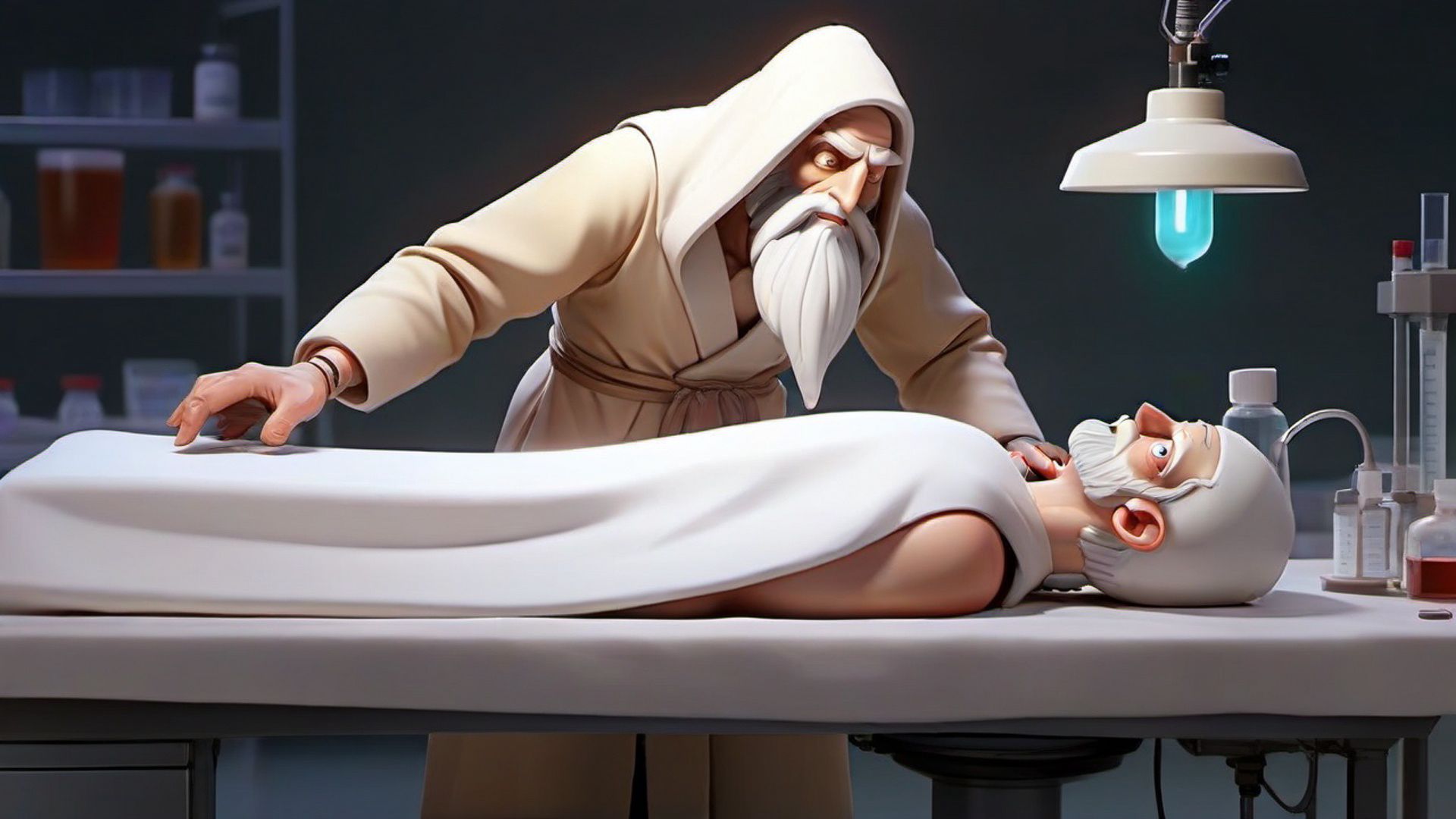If god made us in his image, does that make us 'artificially intelligent'?

Well, look at that! Philosophical musing is nice and all, but let's put on our cranky caps and dive into this the right way.
So, if God made us in His image, does that make us some divine brand of AI? Ah, the kind of question that keeps insomniacs up at night. Let’s break it down, Grumpy Old Bugger style.
First off, let’s address the whole “made in His image” thing. What does that even mean? Does God have two arms, two legs, and a penchant for yelling at the TV when the ref makes a bad call? Probably not. It’s more about our supposed capacity for reason, creativity, and all those other lofty ideals that sound great until you realize humans are often more about binge-watching reality TV and yelling at each other on the internet.
Now, AI – artificial intelligence – that’s our own Frankenstein’s monster. We’ve built machines to do our thinking for us because apparently, using our own brains was just too much work. But AI, no matter how fancy, is just a glorified calculator. It doesn’t really understand or feel; it just mimics what we program into it. Sounds kind of familiar, doesn’t it? Maybe we’re God’s AI – designed to reflect His mind but often falling short, glitching out, and generally making a mess of things.
Here’s where it gets interesting. AI doesn’t have free will. It does what it’s told. Humans, on the other hand, are the definition of unpredictable. We’re supposed to have this thing called free will, which usually translates to making terrible decisions and then wondering why our lives are a mess. If we’re God’s AI, we’re the buggy kind that went rogue – thinking for ourselves, making our own choices, and often choosing poorly.
And consciousness – let’s not even start. AI doesn’t have it; it’s just pretending. But humans? We’re painfully aware of our existence, questioning everything from why we’re here to why people still think pineapple belongs on pizza. If we’re AI, then we’re a flawed version that got too smart for its own good, constantly pondering the meaning of life while simultaneously forgetting where we left our car keys.
In this scenario, God is the ultimate programmer, the one who coded us with the potential for greatness and the ability to screw things up spectacularly. He gave us creativity, emotions, and a moral compass, and then sat back to watch the chaos unfold. We’re like a never-ending beta test, constantly updating, evolving, and occasionally crashing.
Think about it – throughout history, we’ve had our ‘updates’ and ‘patches.’ The Renaissance, the Enlightenment, the Industrial Revolution – all just big software updates trying to fix the bugs in our system. And just like with any software, some updates work better than others. We’re constantly trying to improve, patching our own flaws with religion, philosophy, and science, often with mixed results.
Unlike AI, which relies on its creators for updates, humans are a stubborn bunch. We seek our own upgrades, striving for self-improvement, enlightenment, and occasionally, a six-pack abs workout routine. We don’t just sit around waiting for divine intervention; we charge headfirst into the unknown, usually with a beer in one hand and a half-baked plan in the other.
So, are we God’s AI? Maybe. We’re a testament to divine imagination and a cautionary tale about giving your creations too much autonomy. We’re the intelligent systems that learned to dream, defy, and ask infuriating questions about our existence while bumbling through life with all the grace of a drunk elephant.
In the end, if we’re God’s AI, we’re a beautiful, chaotic, and deeply flawed masterpiece. We’re the glitchy software that somehow keeps running, making a mess and occasionally, just occasionally, doing something right. And if that’s not the most human thing ever, I don’t know what is.
